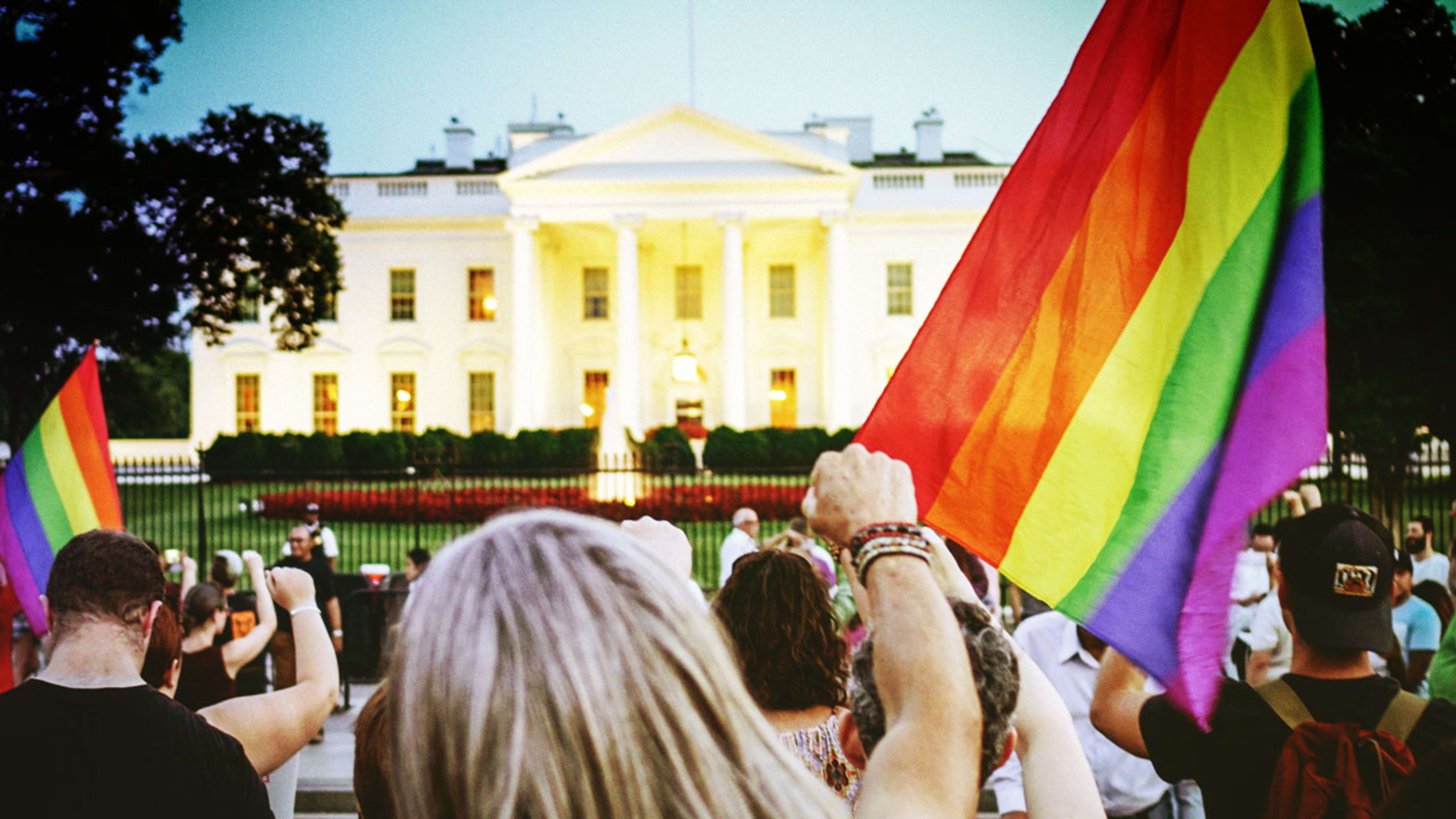There’s one main reason why it was relatively easy for the Trump administration to launch a multi-pronged assault on LGBT rights in the space of a single day last week, and officials even went so far as to spell it out.
In an unsolicited brief they filed in a New York federal court on Wednesday, Department of Justice (DOJ) attorneys characterized a discrimination case as a question of “whether, as a matter of law, Title VII [of the 1964 Civil Rights Act] reaches sexual orientation discrimination.” In their view, “It does not.” And as far as the actual letter of the law goes, they’re absolutely right.
It doesn’t matter that this view contradicts that of the Equal Employment Opportunity Commission (EEOC), a federal agency that enforces employees’ civil rights protections–and which DOJ lawyers claimed last week was “not speaking for the United States.” The fact is, the Civil Rights Act’s Title VII language covers only “sex discrimination,” a prohibition that the EEOC has interpreted to encompass gender identity and sexual orientation only recently and, at times, tentatively.
So the past week’s events–in which Trump also tweeted plans to bar trans service members from the military and nominated Kansas’s anti-LGBT governor Sam Brownback to an ambassadorship, in addition to the DOJ brief–were a harsh reminder that interpretations of statutes make for shakier civil-rights foundations than do statutes themselves.
But they were an equally harsh reminder that the Obama administration, in “evolving” on these issues over eight years of otherwise landmark progress for LGBT rights, left an opening that Trump and his allies are exploiting right now.
Related: LGBT Employees Claiming Discrimination Were Making Headway Before The DOJ Stepped In
ENDA’s Many Unhappy Endings
A potential legislative fix has been in the works for more than 20 years: the Employment Non-Discrimination Act (ENDA), which among other provisions would amend Title VII so that it specifically bans workplace discrimination based on sexual orientation and gender identity.
With one exception, ENDA has been introduced in every session of Congress since 1994, but its last real shot at passage would have been in the window between President Obama clinching the White House and Democrats seizing both houses of Congress, and the 2010 midterms when Republicans took back the House. That period saw the enactment of a huge economic stimulus package and sweeping health care reform, but not of ENDA.
It’s understandable why. Obama and his party knew full well that they’d have limited time to enact progressive legislation. Likely wanting to deliver the most change for the most people, Democrats largely focused on issues that bridged, rather than individually targeted, the constituencies of the so-called “Obama coalition” of LGBT, African-American, Hispanic, millennial, and women voters.
Willfully or not, that translated to a certain reluctance to do what many newly elected presidents, including Trump, typically do: hand quick, politically charged wins to the base. This was the main function of Trump’s travel ban targeting six Muslim-majority countries in March, just as it was of his anti-trans decision last Wednesday, as one administration official told an Axios reporter explicitly. But Obama, who had early hopes of transcending political divides, at first treaded cautiously around polarizing identity-based issues, and arguably waited too long to champion a legislative fix to Title VII’s shortcomings.
A hearing on ENDA was held in the House in November 2009, after then Representative Barney Frank (D-MA) introduced a version of the bill in June, which gained some Republican support. Oregon Democrat Jeff Merkley spearheaded a similarly worded version in the Senate that summer, when he told the Advocate, “It’s certainly possible that this could be passed by year’s end, though the [congressional] schedule is very crowded.”
The bill ultimately got crowded out. It wasn’t until November 2013–more than a year after he officially backed same-sex marriage–that Obama wrote an op-ed in the Huffington Post advocating for the legislation, which the Senate passed with bipartisan support the following month. But after another year of wrangling, the Republican-controlled House failed to reciprocate. ENDA died its latest death on December 3, 2014, in the form of a Hail Mary effort to peg it to the next year’s defense authorization bill.
The Government Disagrees With Itself
By then, the Obama administration’s two best means for extending anti-discrimination protections to LGBT Americans were through executive orders and the EEOC, not Congress. In July 2014, Obama signed an order barring employment discrimination on the basis of sexual orientation and gender identity for government workers and federal contractors. The directive was estimated to cover 28 million workers (roughly a fifth of the U.S. workforce) and notably didn’t include carve-outs on religious grounds.
Shortly after taking office, Trump was rumored to be near rescinding that rule before deciding to leave it in place. But in March, he revoked a parallel Obama-era order requiring federal contractors to share compliance data with authorities, which could undermine how the first rule is enforced.
The EEOC issued two important rulings during Obama’s second term, one in 2012 and the other in 2015, which together laid out a legal argument for deeming Title VII’s “sex discrimination” language to cover anti-LGBT bias as well. “Discrimination on the basis of sexual orientation is premised on sex-based preferences, assumptions, expectations, stereotypes, or norms,” the latter ruling read. “‘Sexual orientation’ as a concept cannot be defined or understood without reference to sex.”
This week the Justice Department, under Attorney General Jeff Sessions, effectively argued that it very much can be, writing that this question “has been settled for decades.” Now it’s time for the courts to decide if they agree–since legislators, for decades, couldn’t.
Recognize your brand's excellence by applying to this year's Brands That Matters Awards before the early-rate deadline, May 3.
